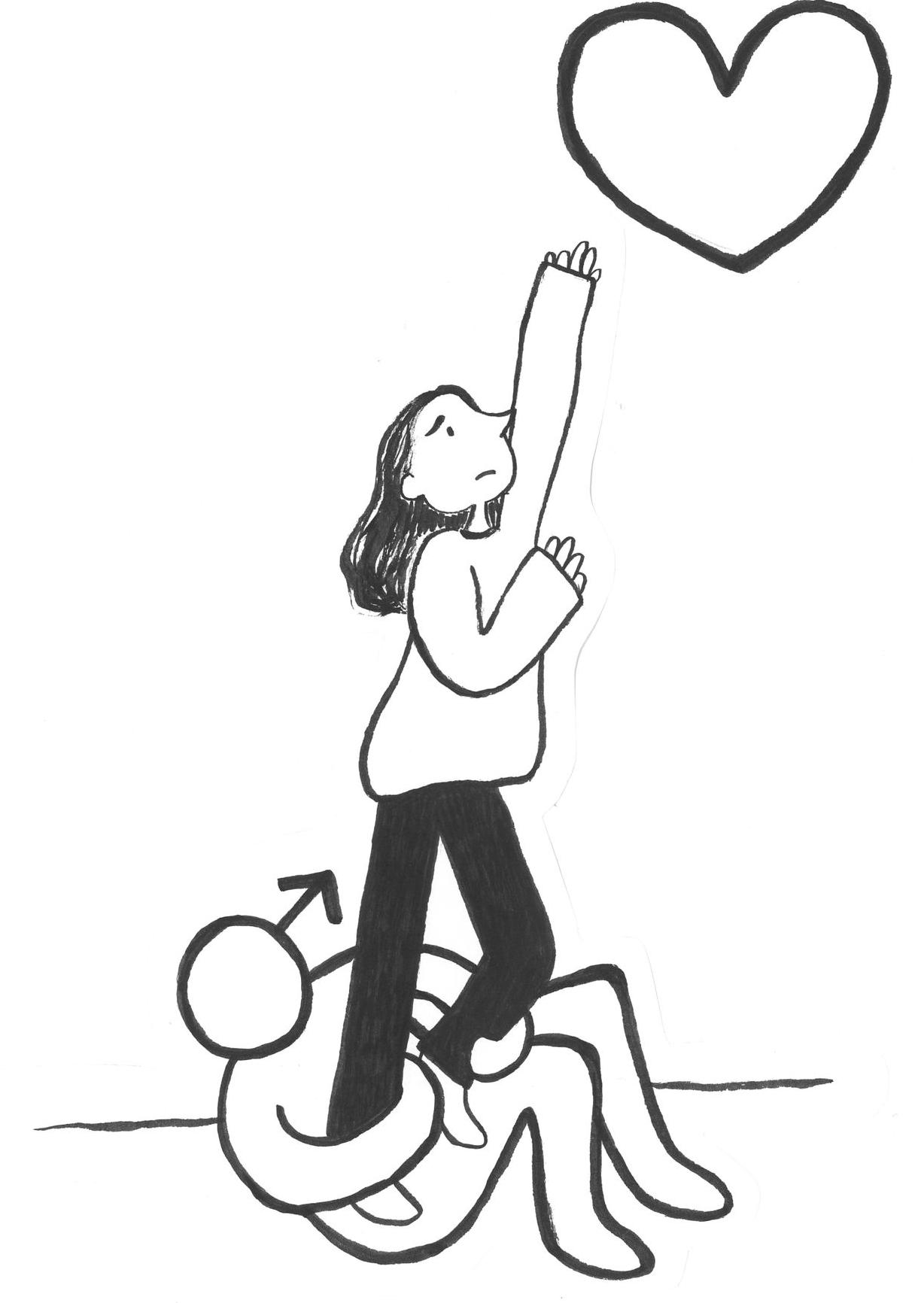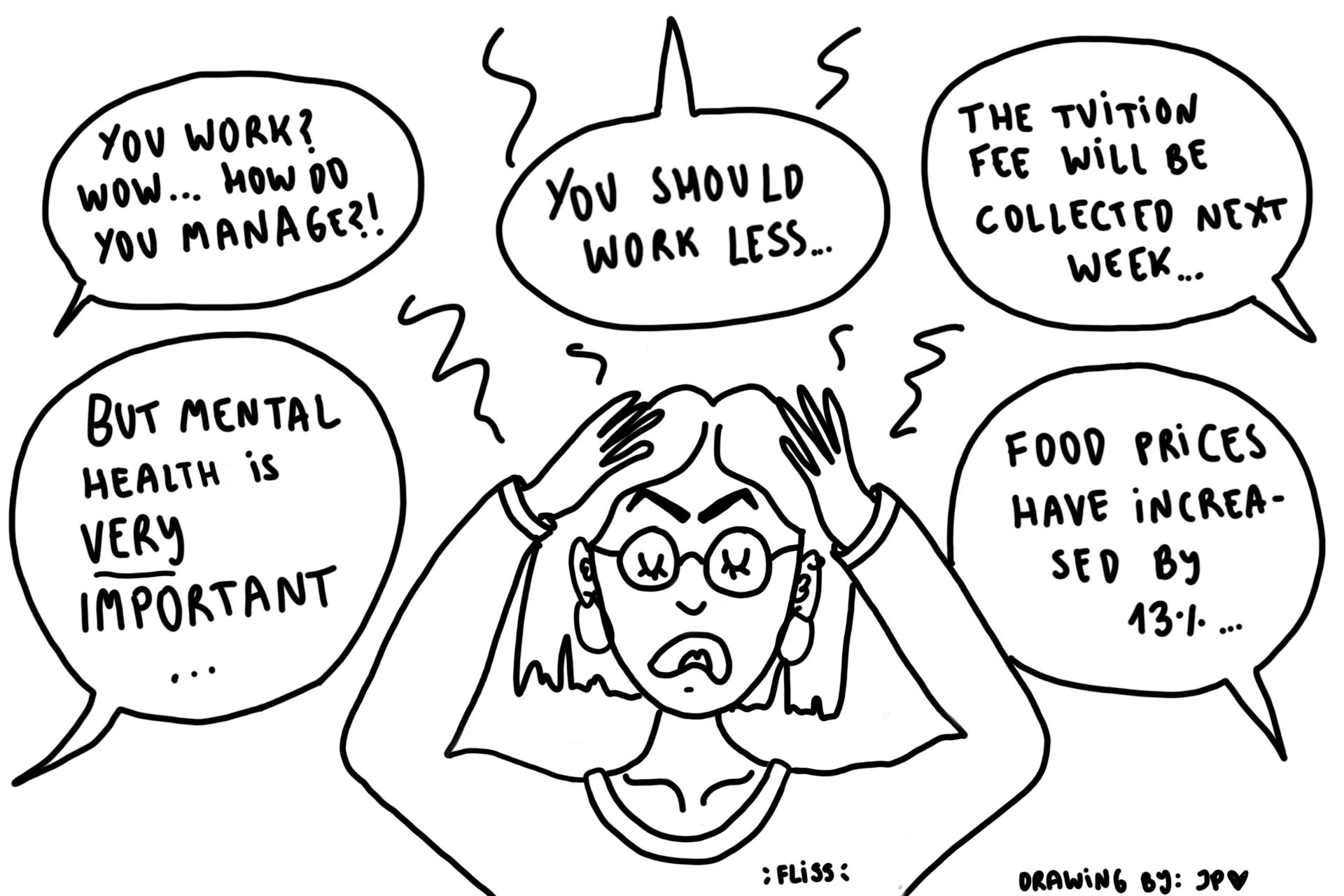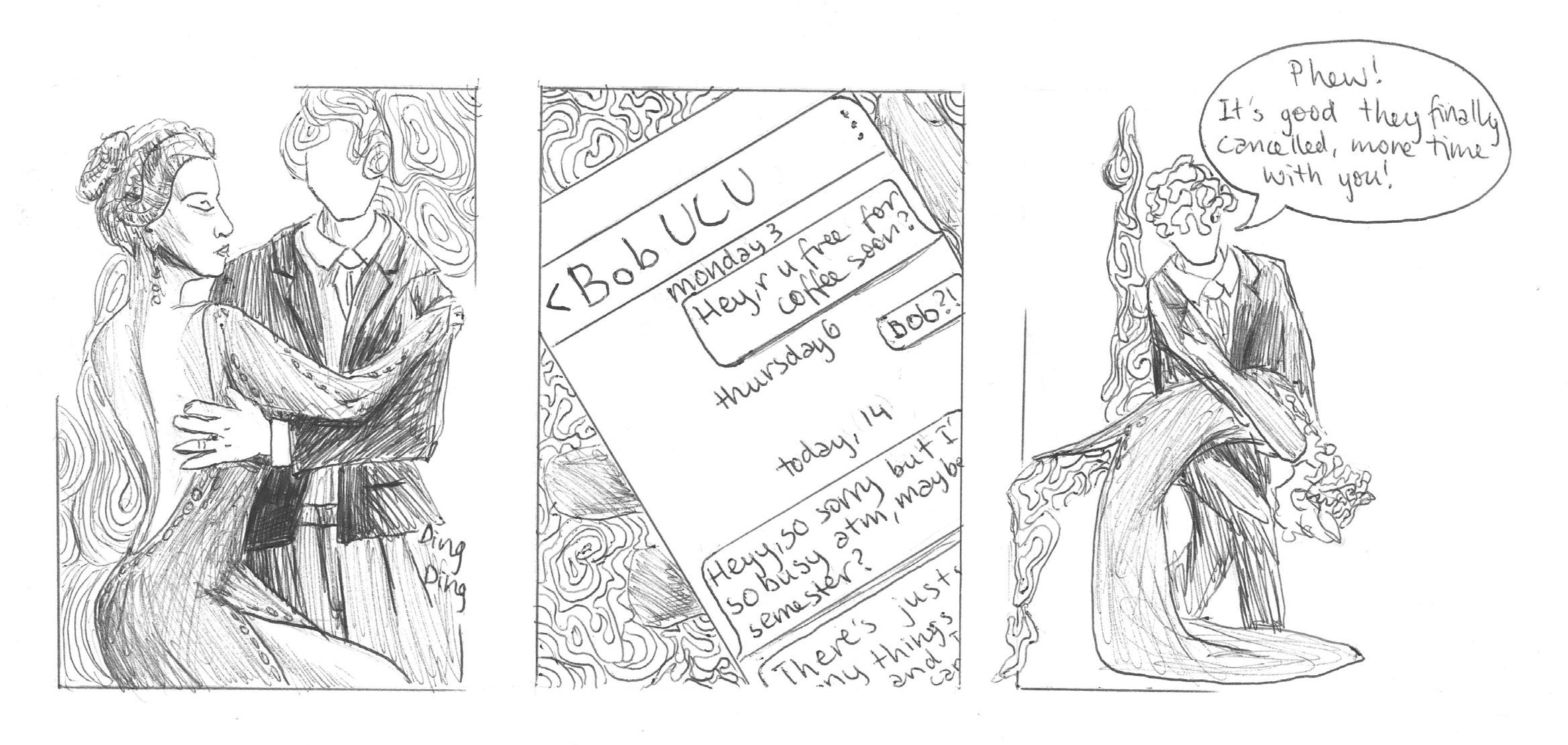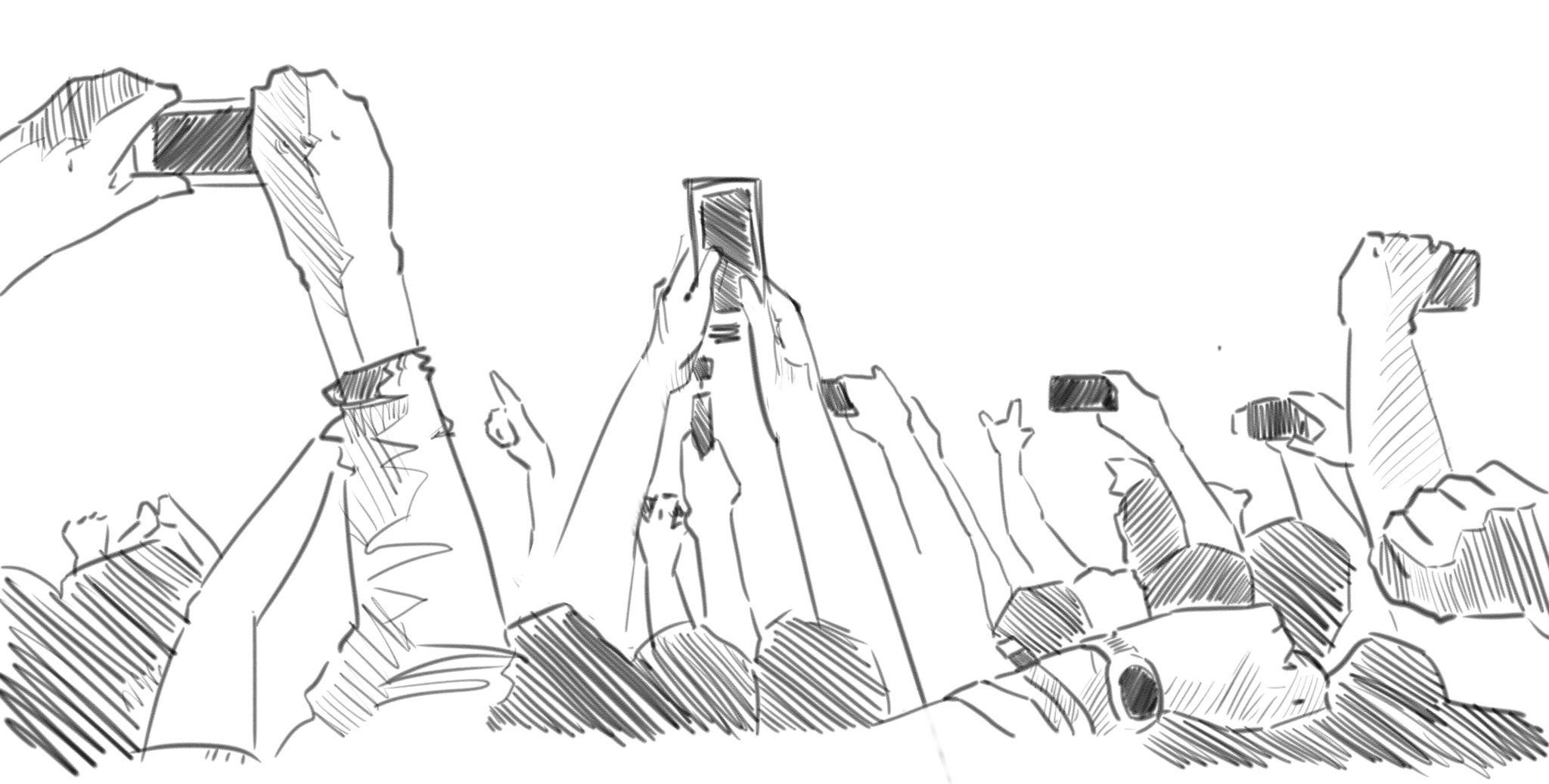
3 minute read
Daddy Issues
from Winter 2022
by Kitty Bertrand
“Do you have daddy issues?” in their life consistently, this could lead to an insecure attachment style later in adulthood.” Right, okay. So that’s a lot to unpack right then and there. First, I did have a father figure, I grew up with my stepdad from the age of seven. Was that consistent? How does one measure consistency? Seven is so young that having a father figure in your life from then on was surely good enough, right? And then there’s the question: does it matter if the father figure in your life isn’t your dad? Does that make a difference in how you develop emotionally? I also had to google the term ‘insecure attachment style’ because despite having seen it on TikTok multiple times, I didn't actually know what it meant. After a couple of minutes of research, I found that it just meant that you felt insecure in relationships. Finally, something I didn’t relate to.
Advertisement
I was asked this question by someone I was ‘seeing’ at the time. I didn’t spend much time thinking about their question before saying ‘No?’ with an audible question mark at the end. I did have issues with my dad, but did that automatically mean I had daddy issues? Later that night, I asked one of my unitmates what she thought. ‘Oh of course you have daddy issues,’ she said almost as quickly as I had asked my question. The justification she gave for her answer made sense, but I wanted to figure out myself what the fuck daddy issues even were, and whether or not I had them.
After understanding that I perhaps do have daddy issues, I decided to give some very wise advice to those who need it, and an explanation to those who don’t relate to this article at all.
Here’s what not to do: I view the love I give as messy. I get attached at a pace that’s inhumanely fast to people who aren’t even real. That’s because I create the version of them that I need them to be. Of course, that’s never who they truly are, and if we’re together long enough, I lose interest and walk away ready to be infatuated by someone else. Take time getting to know someone and please put yourself first, because you will feel broken if they walk away.
Ironically, it took a few clicks before any mention of a father, and until then I kept reading about how women’s poor relationship with men could be defined as having daddy issues. For example, psychology today suggested that “women with daddy issues do not have specific symptoms, but common behaviours include having trouble trusting men and being jealous.” I found this statement extremely objectifying and rejected it.
After all, romantically, I trust way too easily for my own good, and I don’t think of myself as a particularly jealous person. The biggest issue I had with the term ‘daddy issues’ is that despite only speaking to my dad in french, I would never call him the french equivalent of ‘daddy’. In my mind, no one actually called their dad that. For me, the word ‘daddy’ had always been so sexualised. I had never heard that word be spoken with innocence. So, the term ‘daddy issues’ automatically felt like it was yet another way to sexualise women. Also, can we stop and realise that the term ‘daddy issues’ places the blame on the daughters? When will we stop blaming women for what happens to them?
After calming down a bit, I continued with my google search. I learnt from Healthline.com that “if a child doesn't have a father figure
By not having received the love from my dad I wish I had, I thought that love is something you had to fight for. But having fought for over 20 years, I don’t know what the end of the race feels like. So when your crush doesn’t seem to like you back, actively try to get over it. If you’re not receiving the love you deserve from the people around you, have a conversation with them. If they don’t change, leave them behind and find the ones who will.
If you have daddy (or mommy) issues, all your relationships will be greatly affected by it. It will take time for you and your partner to understand what you’re feeling - you have an additional hurdle that many don’t have.
If you have the tendency to trauma dump when you’re starting to get to know someone, you’re most likely trying to bond on a deeper level to make sure they don’t leave you. Whether you do this with potential romantic partners or new friends, you’re putting yourself and your well-being at risk. As my friends have wisely told me, you need to ask yourself whether this person is worthy of knowing such deep and personal things about you before you start sharing. If you question whether you’re good enough for them, that is the time to flip the script and make sure they’re good enough to be in your life.
From the deep dive I took into the internet’s use of the term ‘daddy issues,’ I’ve come to two conclusions. The first is that despite the internet’s belief that daddy issues is an insult to women, it’s actually an insult to their fathers. Second, I came to the conclusion (and scribbled on my shirt at the white lies midterm party) that I do, in fact, have daddy issues.









